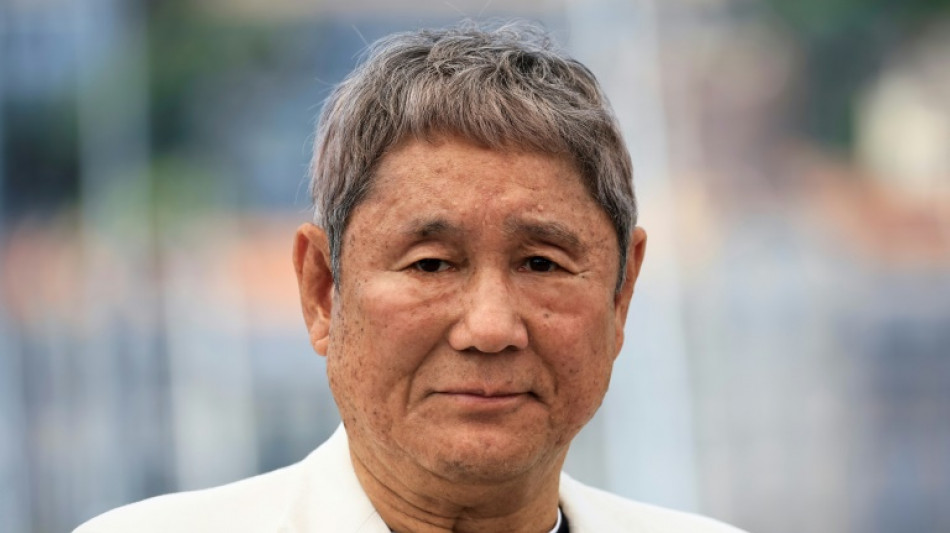
Japan's Takeshi Kitano returns with 'queer' warlord epic

Cult Japanese director Takeshi Kitano has returned after more than a decade, premiering his new film at Cannes -- a bloody quest for power punctuated by love between warriors.
"Kubi", showing out of competition at the Cannes Film Festival, is an epic account of feudal Japan reminiscent of Akira Kurosawa's classic "The Seven Samurai".
It has been 13 years since Kitano's last film, "Outrage", but the 76-year-old is never short of work. In Japan, he is best known as a comedian and TV host, and is also an accomplished writer and painter.
Abroad he is primarily known for his award-winning films as actor and director, starring in 2000's "Battle Royale".
He returned to the French Riviera this week with what could be his last feature film, set in the 16th century with a warlord seeking to unite Japan.
When one of his generals rebels against him, the other warlords embark on a manhunt in the hope of earning their stripes.
But there is also an unexpected focus on the love affairs between warriors.
"Japanese historical films rarely evoke the question of male homosexuality," whereas it "was common at that time", Kitano told AFP.
It's budget -- around $11 million -- is large by Japanese standards and Kitano's biggest to date.
From the first minutes, it sets the tone with an monumental battle full of beheadings and squirting blood -- not unfamiliar from a director known for violent films about the yakuza, or Japanese mafia, in film films like "Hana-bi", which won the Golden Lion in Venice in 1997.
Despite the codes of honour and internal power struggles, Kitano refuses to make a comparison with the yakuza.
"The word 'violent' can be used for these two eras but it has a totally different meaning," he said.
Kitano wrote a synopsis for "Kubi" 30 years ago at the very beginning of his directing career.
But the project only came together in 2019 when he published a novel of the same name.
Did he fear comparisons with Kurosawa -- one of Kitano's heroes.
"I tried not to watch the battle scenes in Kurosawa's films to avoid them influencing me," he admitted.
E.Cox--TNT